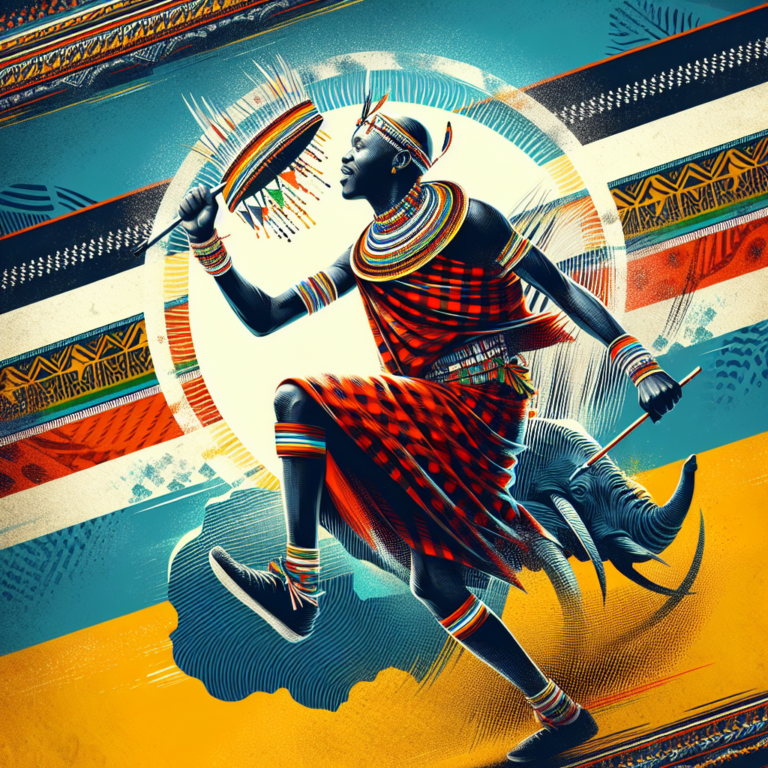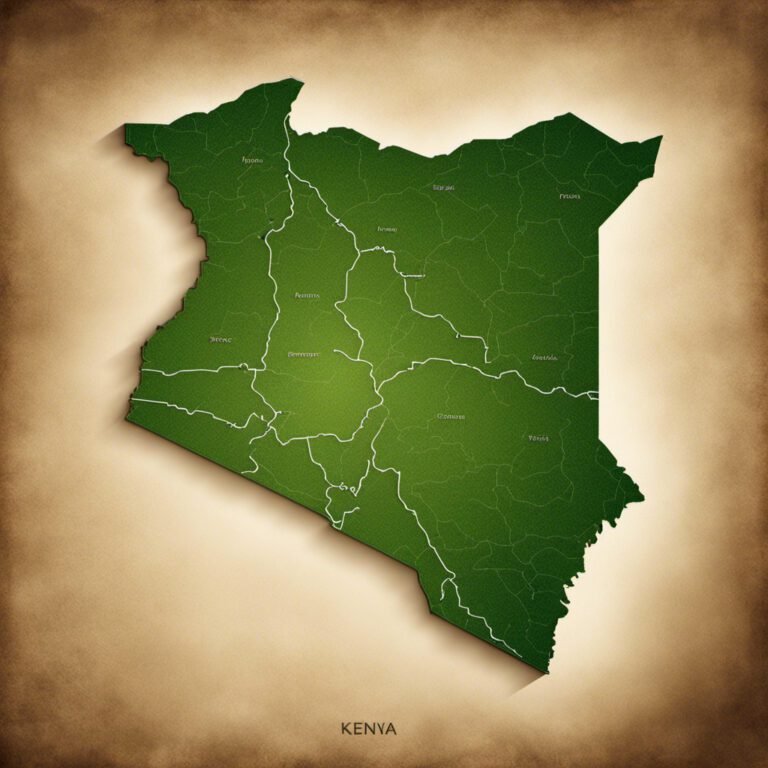How Do Kenyans Address Issues Of Tribalism And Ethnicity?
In a diverse country like Kenya, the challenges of tribalism and ethnicity have been a prominent issue that needs addressing. This article explores the different ways in which Kenyans approach these issues, from fostering unity through cultural festivals to promoting national identity through education and sensitization programs. By understanding the various strategies employed by Kenyans to combat tribalism and ethnicity, we can gain insights into the ongoing efforts to build a more inclusive and harmonious society.
Historical Context
Colonial Era
During the colonial era, Kenya was under British rule, which had a significant impact on the country’s ethnic dynamics. The British administration implemented policies that favored some communities over others, leading to ethnic tensions and rivalries. Land dispossession and forced labor were also prevalent, further fueling grievances among different ethnic groups.
Post-Independence Challenges
After gaining independence in 1963, Kenya faced numerous challenges in addressing issues of tribalism and ethnicity. The legacy of colonialism lingered, and the new government had to navigate the delicate task of nation-building while considering the diverse ethnic makeup of the country. Political power struggles often exacerbated ethnic divisions, leading to periodic violence and instability.
The Role of Leadership
Presidential Influence
Presidential leadership plays a crucial role in addressing tribalism and ethnicity in Kenya. Presidents have the power to shape the national narrative and promote inclusivity. They can use their positions to rally the country towards unity and discourage divisive rhetoric. Strong presidential influence is vital in fostering a sense of national identity that transcends tribal affiliations.
Government Policies
The Kenyan government has implemented various policies to address tribalism and ethnicity. These policies aim to foster national cohesion and safeguard the interests of all ethnic groups. For instance, there are laws in place to ensure the equitable distribution of resources and opportunities among different regions and ethnic communities. The government also encourages diverse representation in leadership positions to promote inclusivity.
Education and Awareness
Curriculum Reforms
Kenyan education has undergone significant reforms to address issues of tribalism and ethnicity. The curriculum now includes lessons on national unity, diversity, and the negative consequences of tribalism. By educating the younger generation about the importance of inclusivity and unity, the government hopes to shape a more tolerant and cohesive society.
National Unity Education Programs
In addition to curriculum reforms, national unity education programs have been introduced to instill values of empathy, respect, and dialogue among Kenyan citizens. These programs often involve interactive sessions, workshops, and team-building exercises aimed at bridging ethnic divides and fostering empathy towards different cultures and communities.
Inter-Ethnic Relationships
Interracial Marriages
Interracial marriages have played a significant role in challenging tribalism and promoting inter-ethnic relationships. When individuals from different ethnic backgrounds marry and start families, it creates a bond that transcends tribal boundaries. These marriages, which are becoming more common in modern Kenya, help break down stereotypes and foster unity between communities.
Cross-Cultural Events
Cross-cultural events provide platforms for Kenyans from various ethnic backgrounds to interact, appreciate different cultures, and promote understanding. Festivals, exhibitions, and cultural exchanges allow individuals to celebrate their diversity while showcasing the commonalities that bind them together as Kenyans. These events foster a sense of belonging and create opportunities for inter-ethnic relationships to flourish.
Media and Communication
Ethical Reporting
The media plays a crucial role in shaping public opinion and influencing national discourse. Ethical reporting is essential in countering tribalism and promoting national unity. Media outlets have a responsibility to report objectively, avoid perpetuating stereotypes, and provide balanced coverage that highlights the commonalities among different ethnic groups. By promoting accurate and inclusive narratives, the media can contribute to reducing prejudice and fostering understanding.
Promotion of National Identity
Through newspapers, radio, television, and online platforms, the media can promote national identity by highlighting stories that celebrate diversity and promote unity. This can include showcasing successful individuals from various ethnic backgrounds, highlighting cross-cultural collaborations, and emphasizing shared national values. Building a collective identity encourages Kenyans to prioritize their common interests above tribal affiliations.
Cohesion and Integration Commission
Establishment and Mandate
The Cohesion and Integration Commission (CIC) was established in 2008 under the National Accord and Reconciliation Act. Its mandate is to oversee the promotion of national unity, prevent ethnic conflicts, and address issues of tribalism and ethnicity. The CIC works closely with other government agencies, civil society organizations, and individuals to foster cohesion and integration among Kenyan communities.
Efforts to Address Tribalism
The CIC has undertaken various initiatives to address tribalism in Kenya. These include awareness campaigns, public dialogues, and mediation processes to resolve ethnic conflicts peacefully. The Commission also monitors hate speech and takes legal action against individuals or groups promoting tribal animosity. By actively addressing tribalism at both systemic and individual levels, the CIC plays a vital role in promoting unity and peaceful coexistence.
Religion and Faith-Based Organizations
Interfaith Dialogues
Religion plays a significant role in Kenyan society, and faith-based organizations have leveraged their influence to address issues of tribalism and ethnicity. Interfaith dialogues bring together religious leaders from different faiths to promote tolerance, understanding, and collaboration. These discussions often focus on shared values and the importance of unity, fostering relationships that transcend ethnic boundaries.
Shared Religious Spaces
Creating shared religious spaces is another way faith-based organizations contribute to addressing tribalism. By encouraging people from different ethnic backgrounds to worship together, it promotes a sense of belonging and spiritual unity among Kenyans. Shared religious spaces emphasize the commonality of religious values and provide opportunities for inter-ethnic interactions, fostering unity and understanding.
Youth and Community Engagement
Youth Empowerment Programs
Investing in youth empowerment programs is a crucial strategy in addressing tribalism and ethnicity. Providing young Kenyans with education, skills training, and entrepreneurship opportunities can help them break free from ethnic divisions and work towards common goals. Youth-led initiatives focusing on civic engagement, community development, and cultural exchange also promote understanding and collaboration among different ethnic communities.
Community Dialogue Forums
Community dialogue forums are platforms where individuals can engage in open and honest discussions about tribalism and ethnicity. These forums prioritize active listening, empathy, and mutual respect, allowing participants to gain insights into each other’s experiences and perspectives. Through constructive dialogue, communities can find common ground, build trust, and work together to address the root causes of tribal divisions.
Political Reforms
Election Reforms
Election-related violence has been a recurring challenge in Kenya, often fueled by tribal tensions. To address this issue, significant election reforms have been implemented to ensure free, fair, and peaceful elections. These reforms include establishing an independent electoral body, enhancing voter education, and creating mechanisms for dispute resolution during electoral processes. By promoting transparent and inclusive elections, Kenya aims to mitigate the influence of tribalism in politics.
Power-Sharing Agreements
Power-sharing agreements have been used as a mechanism to address tribalism and promote political stability. This approach involves the inclusion of representatives from different ethnic groups in key government positions and decision-making processes. By sharing power, it helps prevent a single ethnic community from monopolizing political influence and fosters collaboration among different groups in the governance of the country.
Conclusion
Progress Made
Over the years, Kenya has made significant progress in addressing issues of tribalism and ethnicity. Reforms in education, media, and political landscape, as well as the establishment of institutions like the Cohesion and Integration Commission, have contributed to fostering national unity and cohesion. Interfaith dialogues, youth empowerment programs, and community engagement initiatives have also played a pivotal role in promoting inter-ethnic relationships and countering the negative effects of tribalism.
Ongoing Challenges
Despite the progress made, Kenya continues to face challenges in overcoming tribalism and ethnicity fully. Political rivalries often rekindle ethnic divisions during election seasons, and deep-rooted biases and stereotypes persist within society. Economic disparities among regions and ethnic groups also pose challenges to achieving true equality and shared prosperity. Addressing these ongoing challenges requires continuous efforts from both individuals and institutions, with a collective commitment to building a united and inclusive Kenya.







